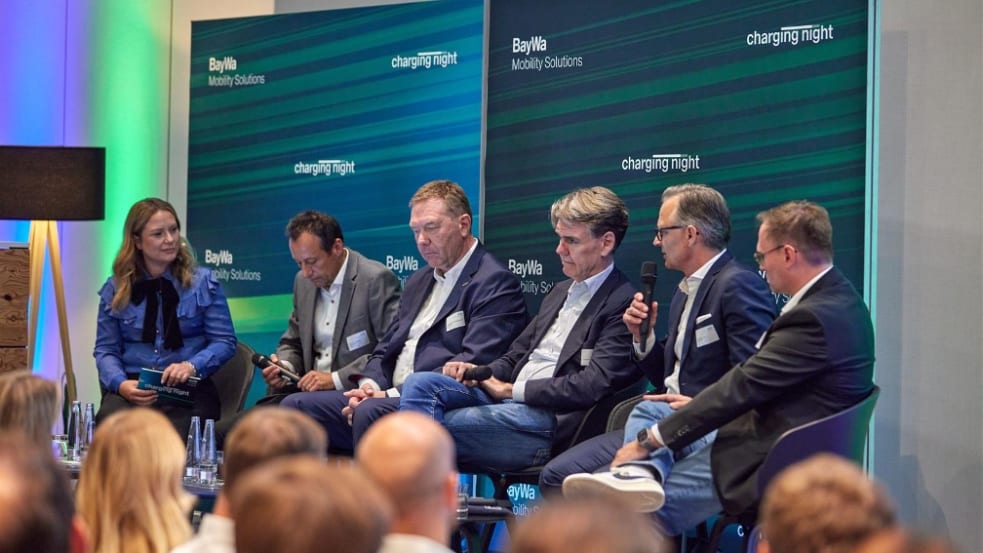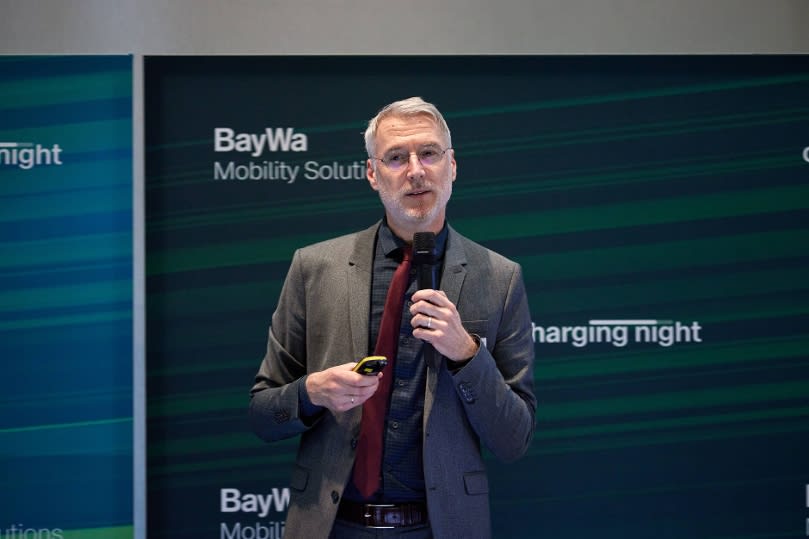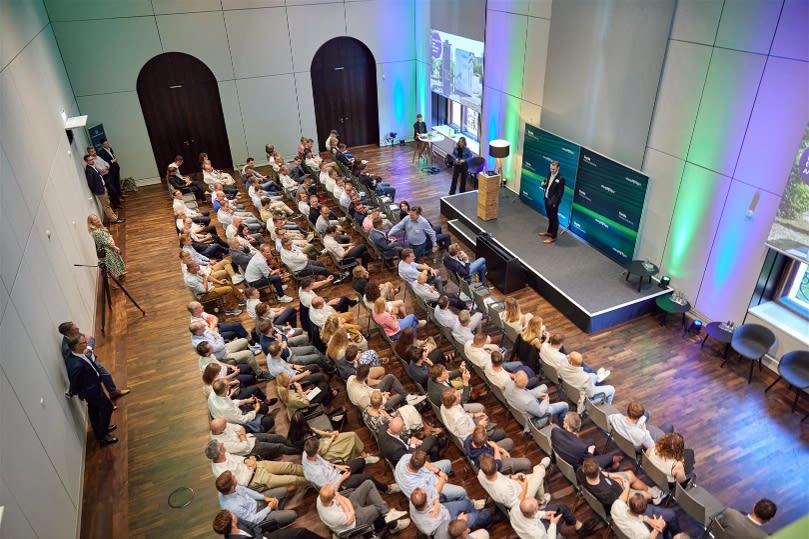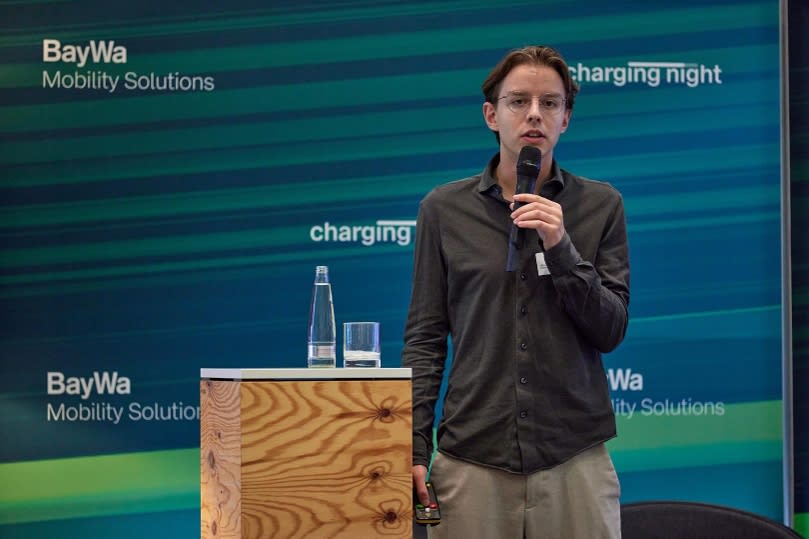Mobilität
Charging Night 2024: Think further, get further!

In addition to the exciting keynote speeches by Kurt-Christoph von Knobelsdorff, CEO of NOW GmbH, and Maximilian Wühr, CEO and co-founder of FINN, the 200 participants were treated to an expert panel on the topic of "How are new technologies defined in different industries and fleets?". Another highlight: the Open Mic with four start-ups from the field of electromobility.
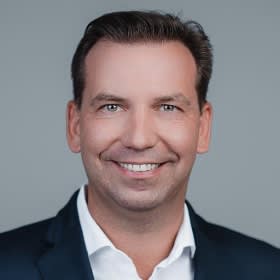
BayWa Mobility Solutions as a driving force behind the mobility transition
"We are still a very young BayWa subsidiary," says Managing Director Christian Krüger as he welcomed the guests. BayWa Mobility Solutions GmbH was founded in 2020 as a subsidiary of BayWa AG. As a general contractor, BMS offers its customers an all-round service in the areas of fleet consulting, digital mobility and planning & construction, thereby driving forward the expansion of the charging infrastructure in Germany.
By 2023, BMS will have installed around 300 charging parks with six charging points each, accounting for almost 10 per cent of fast charging points in Germany. "Now we have reached charging parks ourselves as part of the Deutschlandnetz. BayWa Mobility Solutions is also becoming a charge point operator - BayWa Mobility Charging is born.
"How do we arrive at the economically most favourable energy system?"
Kurt-Christoph von Knobelsdorff is CEO of NOW GmbH, which supports the German government in matters of climate-friendly mobility and technology. He pointed to an important aspect of the energy transition: The cost of grid expansion. "How can we achieve the economically most favourable energy system overall?" asked Knobelsdorff. Among other things, by avoiding grid restructuring, according to Knobelsdorff. Because it is expensive to convert the entire energy system.
On its own, an electrolyser is not yet efficient. It uses solar power to generate hydrogen, which can then be transported to filling stations and refuelled there. However, Knobelsdorff believes that this process makes sense from an economic perspective, as it avoids expensive grid conversions.
As things stand today, Knobelsdorff's message is that we don't just need electricity. For the time being, several technologies are needed to achieve the climate targets in transport. Electromobility and hydrogen, for example. "We have to accept several technology options with humility - because we don't know what will happen."
Open mic for start-ups: four young companies present their ideas
- Decentralised energy supply: solation from Munich uses a patented software-hardware system to help tenants produce electricity and earn money at the same time - even if not everyone in the apartment building wants to join in.
- Powerbank on wheels: VoltVogel develops mobile charging points that roll to the cars. This means that a charging station is never again blocked by a parked car. Because the station comes to the car.
- Electric charging towers: VePa builds charging towers in which up to 12 cars can park and charge. The cars are brought to their charging station in the towers using a paternoster system.
- Fast charging: ZooZ-Power builds buffer storage systems with flywheel mass storage - so that cars can also be charged in power-limited grid environments.
Keynote speech: The founder of FINN reports
The Munich-based company FINN offers car subscriptions - and soon also the equivalent of the JobRad. Namely the JobAuto. CEO and co-founder Maximilian Wühr described the journey of the still young company. The most important thing for Wühr is the consistent customer focus: "I read the negative reviews from our users every day. That is painful. But we only learn if we respond to them."
Panel: How are "new driving technologies" defined in different sectors and fleets?
Marcus Lienkamp heads the Chair of Automotive Engineering at the Technical University of Munich and says: "The expansion of renewables will only work if we get storage systems in. Electric cars are ideal for this - because we can use them as mobile storage units."
Matthias Taft is the CEO of BayWa r.e. and says: "We have enough electricity. But we need to distribute it properly. We need to further expand the necessary grid."
Joachim Drees is a start-up investor and says: "Hydrogen cannot yet be used as a storage medium; it first has to be used as a process gas, for example in steel production. In terms of storage, the focus is currently on battery technology."
Christoph Gröblinghoff is the CEO of AGCO Fendt and says: "A combine harvester costs half a million, has 900 hp and is used 25 days a year. We demand high performance in a short space of time. There is currently no alternative to the combustion engine." At the same time, says Gröblinghoff, there is demand for small tractors with batteries in many places, for example in local authorities. Their use could be worthwhile here.
Markus Neumayer is Regional Director Amazon Logistics and says: "The customer wants electromobility. We are responding to this." According to Neumayer's forecast, 70 per cent of the parcel industry will be electrified in ten years' time.
